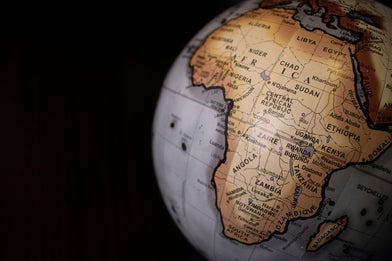The stories shaping Africa this week — buried everywhere else
- GoldGhana expands bullion-for-oil
- CopperZambia links repayments to exports
- LithiumEthiopia concessions (Oromia, Afar)
- FXNaira pressure vs fuel import needs
- GasAlgeria capacity constraints
- PGMSA platinum/palladium risk
- CobaltDRC industrial vs artisanal
- FertMorocco phosphates leverage
- CocoaCôte d’Ivoire supply squeeze
Ghana: paying for oil with gold
Ghana uses domestic gold to settle part of refined fuel imports, reducing immediate dollar needs and providing a buffer during currency stress. It supports reserves without fully replacing USD trade.
Whether it scales depends on consistent gold output, transparent pricing, and verifiable accounting — watched closely by other resource economies exploring dedollarization.
Sources
Zambia: copper-linked debt service
Repayments linked to copper flows synchronize debt service with Zambia’s hard-currency earner, but heighten exposure to price swings and mine disruptions.
Transparent offtake contracts and governance at state-linked miners will determine if the structure stabilizes or magnifies risk in down-cycles.
Sources
Ethiopia: lithium concessions (Oromia & Afar)
Authorities advanced lithium concessions in regions with recent instability to court EV supply chains. Investors will look for third-party resource verification and secure export routes.
Community consent, security guarantees, and fiscal stability clauses are key to bankable projects.
Sources
Nigeria: refinery utilization vs imported fuel
Crude export dollars are offset by high imports of gasoline and diesel. Fiscal relief requires reliable domestic refining and credible pricing to avoid re-creating subsidy arrears.
Watch commissioning timelines, FX access for importers, and pass-through of global prices to the local template.
Sources
Algeria: replacement gas for Europe — bottlenecks remain
TransMed/Medgaz helped backfill Europe’s lost Russian gas. Sustained growth needs firm long-term contracts that justify upstream and midstream investment.
Regulatory clarity and partner alignment are prerequisites for expanding beyond current plateaus.
Sources
South Africa: platinum group metals under strain
Hybrids and diesel fleets keep catalyst demand for platinum/palladium significant. Power instability and industrial action constrain output, leaving automakers exposed.
Power market reform and mine safety policy will shape export reliability and prices.
Sources
DRC: cobalt concentration & ESG exposure
Global cobalt supply remains heavily concentrated in the DRC, with Chinese-owned assets leading industrial output. Artisanal mining persists, raising due-diligence risks for battery supply chains.
Any regulatory move on ASM formalization can ripple through cathode supply in a single quarter.
Sources
Zimbabwe: lithium ramp, thin local beneficiation
Output and exports are rising, largely feeding offshore processors. Royalty regimes and processing mandates will decide how much value remains in-country.
Capex discipline and stable power are bottlenecks for domestic conversion capacity.
Sources
Morocco: phosphates steer global fertilizer affordability
Contract structures and freight costs continue to set fertilizer affordability in import-dependent countries. Green ammonia pilots could become the next strategic moat.
Watch offtake MoUs and decarbonization incentives.
Sources
Côte d’Ivoire: cocoa stress (weather & disease)
El Niño and swollen shoot disease constrained output, tightening margins for local processors. Farm-gate incomes depend on how much of the price rise reaches producers.
Traceability schemes can lift premiums — if enforcement is credible.
Sources
Sudan: conflict gold routes undermine sanctions
Despite conflict, gold leaks into global markets through informal networks, financing armed groups and distorting trade accounts in neighbors.
Downstream due diligence and customs cooperation are slow-acting but vital pressure points.
Sources
Tanzania: LNG talks — slow but moving
Government seeks to unlock offshore gas via LNG. Negotiations hinge on fiscal terms, local content, and land access near proposed sites.
Risk-sharing alignment will determine if final investment decisions materialize.
Sources
Mozambique: LNG restarts tied to security
World-class reserves remain underutilized as operators calibrate return-to-site plans. Competing LNG from Qatar/US fills market gaps for now.
On-the-ground security and community agreements will govern any ramp-up.
Sources
Angola: decline management & midstream gaps
New FPSOs and drilling slow natural decline, but refining shortfalls keep product imports high. Midstream upgrades are essential to keep value onshore.
Licensing rounds and predictable contracts set the next investment cycle.
Sources
Botswana: diamond sales model shift
Improved terms aim to raise domestic value capture and beneficiation. The reset pressures legacy pricing models amid cyclical luxury demand.
Local polishing capacity and marketing channels decide how much uplift sticks at home.
Sources
Rwanda: cross-border fintech rails
Kigali’s sandbox supports cross-border pilots on settlement and identity, aiming for cheaper remittances and smoother trade payments.
Harmonized KYC/AML and predictable FX rules are essential for scale.
Sources

Add comment
Comments